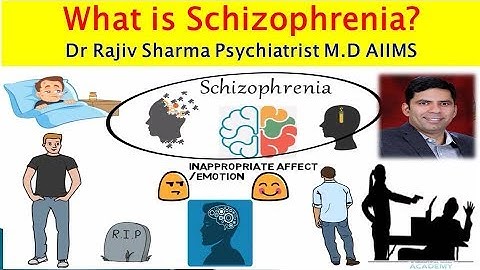For couples trying to conceive, the missed period is often the first exciting sign of a positive pregnancy. But what should you think, then, when the pregnancy test is negative? Show
Causes of a Negative Pregnancy TestThere are a several possible explanations for a negative pregnancy test with a missed period that may occur in the absence of pregnancy. AnovulationWhen you are trying to conceive, it is important to determine whether you are successfully ovulating each month, as ovulatory dysfunction or anovulation may play a role in your missed period and can affect your ability to conceive. There are many causes for ovulatory dysfunction or anovulation. Just a handful of these causes include:
Primary Ovarian Insufficiency (POI)Some women may have a condition known as primary ovarian insufficiency (POI). In POI, the symptoms experienced are similar to those of menopause. As the ovarian follicle count is depleted prematurity, falling estrogen levels lead to hot flashes, vaginal dryness, and an absence of menses as the woman prematurely enters menopause. Miscalculating Your PeriodThe average menstrual cycle is 28 days, but far too often we forget to note day 1 of our cycle. Additionally, cycles can sometimes vary in length from month to month. Charting Basal Body Temperature or using Ovulation Prediction Kits (OPKs) can help you get a firm grasp on your menstrual cycle to predict when you are most likely to conceive. Second, there are a few reasons why your pregnancy test may read negative when you are, in fact, pregnant. Some reasons for this may include: Home Pregnancy Test with a Low SensitivityA home pregnancy test will only detect pregnancy when the level of “pregnancy hormone,” also known as human chorionic gonadotropin (hCG), reaches a certain threshold, and it simply may not be sensitive enough to produce a positive result. Certain brands state that they can detect lower thresholds of hCG; depending on how soon you are taking the pregnancy test after the missed period, it may be worth trying again with a more sensitive brand, ensuring you are using the first morning urine for your test (hCG concentrations are highest in the first morning urine). Taking a Home Pregnancy Test Too SoonAnother reason for a false negative pregnancy test may simply be that you took the test too early. Pregnancy tests vary in how soon they can detect hCG in your urine. It is possible that although an egg may be fertilized, your body has not started secreting enough hCG to register as positive on a test. Your body needs time for the hormone to rise to a high enough level to be detected. Most brands instruct you to wait until the first day of your missed period to test. Remember, hCG rises differently in each woman. If you suspect you are pregnant, even though the test is negative, the test should be repeated in one week. If you are trying to conceive and your period is more than one week late with a negative pregnancy test, you should consider consultation with a fertility doctor so that you can be properly evaluated and treated, if necessary.
Period pains but no period: Could I be pregnant?Period symptoms but no period might actually be a sign of pregnancy. This is because when the embryo implants into the uterine lining, cramping may occur. Following this, breast tenderness, headaches, fatigue, and more symptoms occur as the body begins going through various changes to carry the fetus. If you suspect this might be what you’re experiencing, watch for these signs of pregnancy. A pregnancy test can detect pregnancy as early as 10 days after conception. But there are things that can make a positive urine home pregnancy test inaccurate, and here are some of them:
It is also possible for a negative home urine test to be wrong:
However, the absence of menstruation doesn’t necessarily mean you’re pregnant. There are lots of things that can cause period symptoms like cramps without actually having periods. Causes of period symptoms without menstruatingPremenstrual symptoms are common. In fact, about 90 percent of women state they experience cramps, bloating, headaches, fatigue, moodiness, tender breasts, and difficulty sleeping before their periods. So it makes sense for you to assume you’re about to get your period when you have these symptoms. But what if you experience moodiness, breast tenderness, bloating, or cramps, but no period? Is it simply a delayed period, or is it something else?
 Rigorous trainingThis is most common for female athletes. According to studies, the risk of developing menstrual irregularities is three times higher for people who are involved in competitive sports. This is especially true among long-distance runners. A 2010 study of 87 women found that frequent, intense workouts affect the menstrual cycle. Around 50 percent of the participants who did intense training had menstrual cycle issues: 30 percent of them had a period delay, and 11 out of 17 long-distance runners didn’t get periods at all, a condition called amenorrhea. Another study of 187 Norwegian long-distance runners found that almost a quarter of them had menstrual disturbances (from minor ones to amenorrhea). Low weightLow body weight and body mass index (BMI) can also cause a missed period with some symptoms. Menstrual irregularities and amenorrhea are both associated with eating disorders. Studies have shown that people with a low body weight — less than 85 percent of what’s considered a healthy BMI for them — are four times more likely to have menstrual problems. According to one study, a sharp decrease in weight, especially in combination with stress, can lead to impaired ovulation and menstrual dysfunctions. StressEven though stress is unfortunately common, it can have a major impact on health, wellness, and the menstrual cycle. A 2010 study of over 1,600 working women found that stress at work and in the family was associated with menstrual problems in around 60 percent of participants. And a 2015 study of 100 medical students aged 18 to 23 and a study on Taiwanese nurses found that high stress levels are associated with irregular menstrual periods. MedicationsThere are certain medications that can also cause period symptoms, but no period. For instance, these medications affect hormone levels that can affect the menstrual cycle:
Hormonal birth control, such as the pill or injection, contains synthetic hormones that help regulate your cycle and prevent pregnancy. If you’ve recently started taking a new form of birth control, it might take your body some time to adjust. Usually, this adjustment period lasts from a few weeks to several months. During this time, it’s common to skip a period, experience irregular periods, and have period symptoms without menstruation. Additionally, when you’re coming off birth control, you may experience similar effects. And here are some drugs that can disrupt the menstrual cycle as a side effect:
Polycystic Ovary Syndrome (PCOS)Polycystic Ovary Syndrome (PCOS) is a disorder associated with hormonal imbalances. PCOS can cause the body to produce more of male androgen hormones, which can cause various issues. One of them is difficulty regulating the menstrual cycle, resulting in skipped, irregular, or late periods. If you suspect you might have PCOS (common symptoms include excess body hair, male pattern baldness, irregular periods, and acne), it’s important to see a health care provider for consultation. Thyroid conditionsThe thyroid gland regulates many metabolic and hormonal functions, including body temperature, heart rate, menstrual cycle, and more. But nutritional deficiencies, stress, autoimmune diseases, and other things can disrupt how the gland functions. There are two different conditions that might trigger menstrual disturbances: underactive and overactive thyroid. TakeawayIt’s important to remember that having period symptoms but no period doesn’t necessarily mean you’re pregnant. There are a variety of reasons you might miss a period or experience a delayed period. Taking a home pregnancy test about five days after you were expecting your period can help you figure out what’s going on, as can listening to your body and the clues it’s giving you. From there, you can do what’s best for you, your health, and your life. Why do I have period symptoms but no period and negative pregnancy test?The most common reason for a late period and a negative pregnancy test is that your period is simply delayed and you're not pregnant. Having one or two irregular cycles a year is not unusual and does not mean there is something wrong. Reasons your period might be late include: Breastfeeding.
Can I still be pregnant if the test is negative and no period?could i still be pregnant? If you take a pregnancy test after your period is late and get a negative result, you're unlikely to be pregnant. Home pregnancy tests are very accurate — about 99 percent — but a false negative is still possible. Try taking another pregnancy test in a day or two to double check.
Can you be 5 weeks pregnant and test negative?Pregnancy tests are designed to detect hCG, but an initial negative may occur if you take the test before your body has had enough time to reach adequate hCG levels. At this stage, hCG doubles roughly every 48 hours. You may get a different result if you wait a couple of days before trying again.
Why do I have all the pregnancy symptoms but negative test?If you feel as though you're pregnant but got a negative home pregnancy test result, your symptoms could be down to premenstrual syndrome (PMS) or you may have taken the test too early.
|

Related Posts
Advertising
LATEST NEWS
Advertising
Populer
Advertising
About

Copyright © 2024 nguoilontuoi Inc.


















